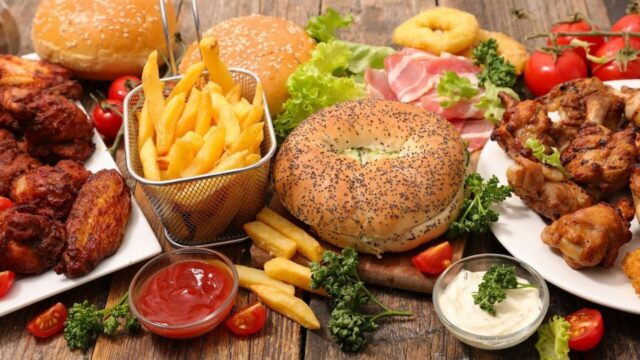Worst Foods We All Secretly Judge You For Eating
By Peter Vanderbuild
August 28, 2025 • Fact checked by Dumb Little Man
Let’s be real for a second: when it comes to the worst foods, we all do a little silent judging. You know that moment when someone grabs a plate stacked with greasy fried foods, sugary sodas, and processed meat, and you think, “Sweetie, your poor arteries”? Yeah, that one.
The fact is, some of these comfort foods aren’t just harmless indulgences; they’re little health bombs. Packed with high fructose corn syrup, added sugar, and saturated fat, they silently attack your blood vessels and raise your cholesterol levels. Over time, this puts you at an increased risk of heart disease, high blood pressure, and insulin resistance.
As someone obsessed with nutrition and lifestyle medicine, I feel like it’s my duty to spill the tea—with love and a bit of sass. So buckle up, because we’re about to go deep into the foods most of us silently side-eye, why they’re harmful, and the healthier options you can enjoy instead.
Why Worst Foods Hit Harder Than You Think
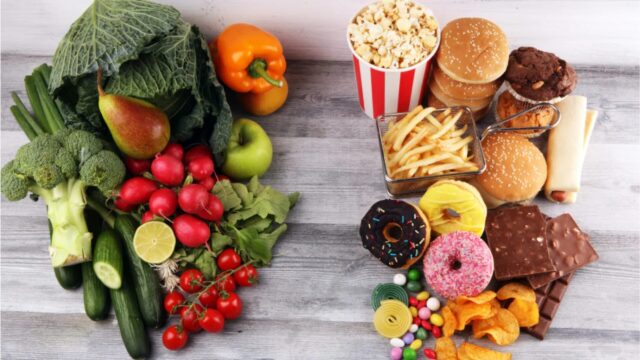
There’s a huge misconception that only people who constantly eat junk food are eating unhealthy foods. The truth? Many foods that seem innocent at first glance are hiding dangerous ingredients. Ever pick up “low-fat” breakfast cereals or “healthy” granola bars? Spoiler: they often contain refined sugars, artificial sweeteners, and loads of added sugar that send your blood sugar on a wild ride.
The worst part is how sneaky the food industry can be. A product might scream “low-fat” or “zero calories,” but if you check the nutrition label, you’ll often find refined flour, processed oils, and vegetable oils lurking in the ingredients list. These can harm your gut health, contribute to weight gain, and put you at an increased risk of cardiovascular disease.
Bottom line: eating certain foods with little nutritional value, when consumed regularly, inflames your blood vessels, leading to high cholesterol and other serious health risks. The trick is awareness. Once you know where these hidden dangers are, you can make smarter swaps without giving up flavor.
Processed Meat: The Deli Diva Gone Rogue
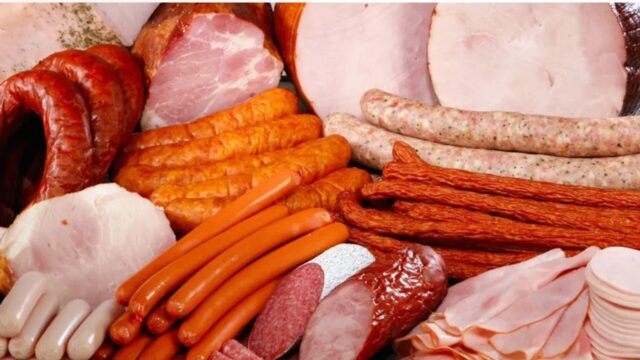
Let’s talk about the queen of convenience: processed meat. I know, it’s fast, it’s easy, and who doesn’t love a sandwich with deli ham or some hot dogs at a summer barbecue? The problem is what you don’t see: loads of sodium, nitrates, and hidden trans fats that do more harm than good.
When you eat processed meats like bacon, pepperoni, or lunch meat often, you’re increasing your risk of heart problems and high blood pressure. These foods inflame your blood vessels, raise your cholesterol levels, and often come with almost no essential nutrients. Plus, if you’re pairing them with white buns made of refined flour, you’re doubling the damage.
The fix? You don’t have to give them up completely, but save them for special occasions and opt for grilled chicken, turkey, or plant-based proteins as healthier options most of the time. Your heart will thank you.
Fried Foods and Their Crunchy Lies
Listen, no one is denying that fried foods taste amazing. That crispy crunch? Irresistible. But here’s the truth: behind that golden crust are palm oil, refined vegetable oils, and often processed oils filled with artificial trans fats.
When consumed regularly, fried favorites like French fries, fried chicken, and onion rings can wreak havoc on your health. They spike your cholesterol levels, inflame your blood vessels, and contribute to weight gain and insulin resistance. And let’s not forget they’re typically high in calories with very little nutritional value.
If you’re craving that crunch, there are better ways. Oven-baked fries with a drizzle of olive oil and herbs are delicious and heart healthy. Air fryers are also a game-changer, giving you that crispy texture with a fraction of the oil and none of the guilt.
Sugary Drinks: Liquid Trouble
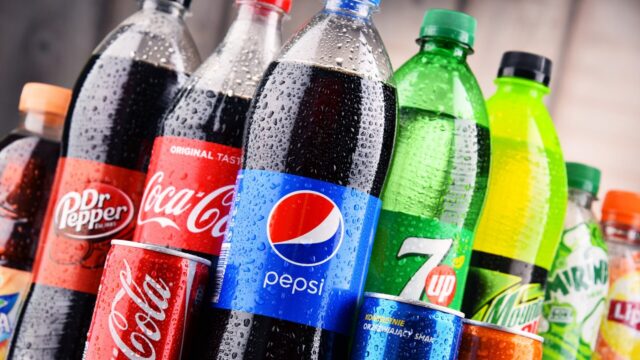
Sugary drinks are basically dessert in disguise. That soda or sweetened iced tea? It’s loaded with added sugar and refined sugars that spike your blood sugar, harm your gut health, and pack on empty calories. Even so-called “healthy” energy drinks and smoothies from your favorite café can contain more sugar than a candy bar.
And don’t think diet soda is an innocent alternative. Zero calories doesn’t mean zero problems. Those artificial sweeteners confuse your body’s insulin response, often making you crave even more sugar.
The solution? Switch to sparkling water with fruit slices, unsweetened tea, or infused water. You’ll hydrate your body, protect your blood vessels, and support your weight management goals—without giving up on taste.
Red Meat: Friend or Foe?
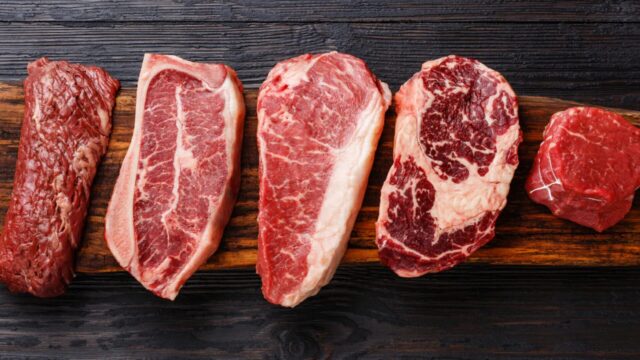
Here’s where things get controversial: red meat. People love their burgers, steaks, and roasts, and hey, I’m not saying you have to go vegan tomorrow. But too much red meat, especially when paired with high saturated fat content cooking methods and sauces full of added sugar, can spell trouble for your overall health.
When consumed regularly, red meat has been linked to high cholesterol, clogged blood vessels, and even cardiovascular disease. That’s because it’s often high in saturated fat and lacks the fiber and essential nutrients you get from fresh produce and whole grains.
So what’s the fix? Balance. Enjoy a juicy burger occasionally, but make healthier options your default: lean cuts, smaller portions, and add plenty of whole grain bread, veggies, and healthy fats like olive oil to your plate. Your heart and your cholesterol levels will thank you.
Microwave Popcorn & Potato Chips: Snack Traps
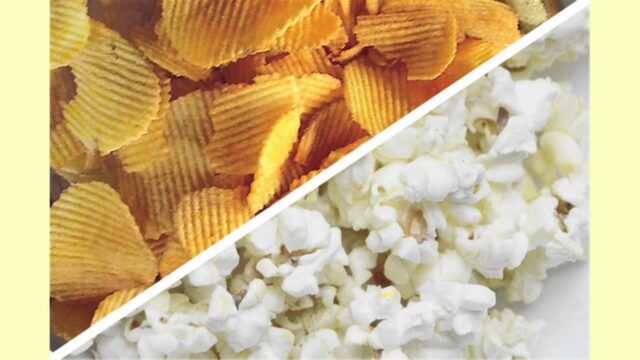
Movie night feels incomplete without microwave popcorn or a bag of potato chips, right? Unfortunately, these snacks are often loaded with partially hydrogenated oils and artificial trans fats. That creamy butter flavor? Usually chemicals. That salty crunch? A fast track to high blood pressure and weight gain if you eat them all the time.
Most packaged potato chips and popcorn are high in calories, made with palm oil or refined vegetable oils, and lack any real nutritional value. They inflame your blood vessels, spike cholesterol levels, and leave you craving more thanks to all that added sugar and salt.
If you can’t quit them (and honestly, same), opt for air-popped popcorn drizzled with olive oil and spices, or baked chips as healthier options. You still get that crunch without the avalanche of processed oils and empty calories.
Breakfast Cereals: Sugar Bombs in Disguise
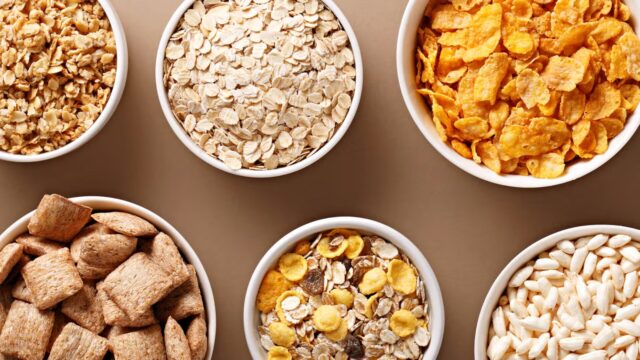
That bowl of colorful breakfast cereals you loved as a kid? Hate to break it to you, but most of them are basically candy in a box. Even the ones labeled “whole grain” or “fortified” often contain refined sugars, added sugar, and sometimes even high fructose corn syrup.
When you start your day with a bowl full of sugar, you spike your blood sugar, then crash mid-morning, leaving you reaching for more snacks. It also wreaks havoc on weight management and gut health. Plus, the refined flour in many cereals has almost zero nutritional value.
A better choice? Real whole grains like oatmeal or homemade granola sweetened with fruit. Add some nuts or a drizzle of olive oil for healthy fats and fiber, and you’ll feel fuller, longer, and protect your overall health.
Full Fat Dairy: Creamy Taste With a Catch
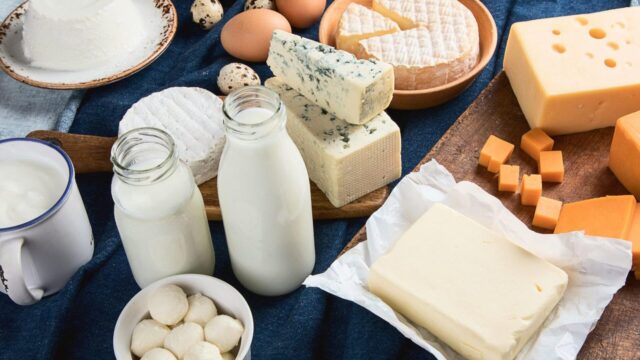
Cover your ears, cheese lovers. Full-fat dairy products can taste rich and creamy, but there's a catch: they contain a lot of saturated fat. Consuming foods like butter, heavy cream, and full-fat cheese on a regular basis can increase your risk of heart disease, clog your blood vessels, and raise your cholesterol levels.
I'm not advocating that you stop eating cheese completely, though. Protein and calcium are two important nutrients found in dairy. Moderation and making wiser decisions are crucial. For a heart-healthy twist, try yogurt-based dips and spreads or replace some of your full-fat dairy with reduced-fat alternatives.
Also, be mindful of the sneaky added sugar in flavored yogurts. Always check the nutrition label to make sure you’re not trading one problem for another.
Fast Food: The Usual Suspect
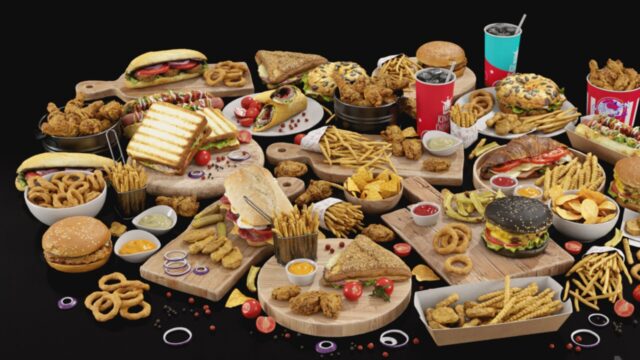
No article on the worst foods would be complete without mentioning fast food. Burgers, fries, milkshakes—it’s the classic combo of processed meats, fried foods, and sugary drinks. And don’t let those “healthy” fast food salads fool you; most are drenched in dressings made with processed oils and loaded with sugar.
Regular trips to the drive-thru pile on high saturated oils, refined vegetable oils, and empty calories. This leads to high cholesterol, insulin resistance, and high blood pressure—not to mention major weight gain if consumed regularly.
If you can’t quit fast food, at least make smarter picks. Go grilled instead of fried, skip the diet soda and other sugary drinks, and add some fresh produce on the side. Little changes can make a huge difference for your overall health.
Decoding the Nutrition Label
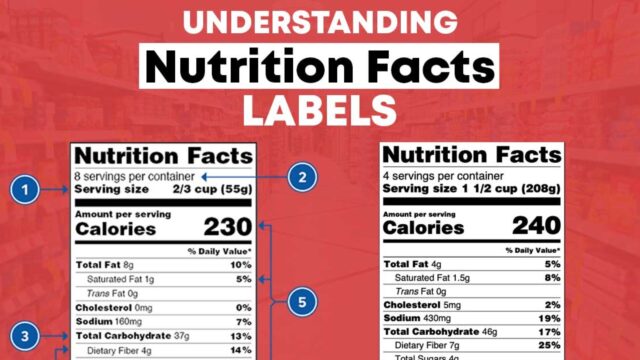
Here’s your secret weapon against all these sneaky unhealthy foods: the nutrition label. Most people ignore it, but learning how to read it is life-changing.
Check the serving size first—many packages hide two or three servings in what looks like one. Then look for added sugar, high fructose corn syrup, saturated fat, and partially hydrogenated oils. If any of those are high on the list, run.
Instead, pick foods rich in whole grains, essential nutrients, and healthy fats like olive oil. The nutrition label is your roadmap to a healthy diet and a great way to avoid worst foods disguised as “health food.”
Energy Drinks: A False Boost
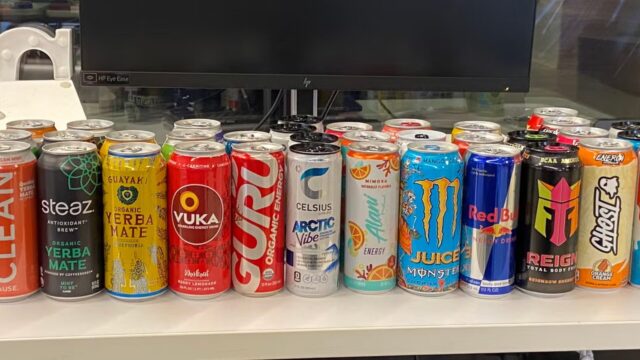
Energy in a can? Tempting, I know. But those brightly colored energy drinks are basically liquid chaos for your body. They’re loaded with added sugar, refined sugars, and caffeine levels that could wake the dead. Sure, you feel a temporary jolt, but then your blood sugar crashes, leaving you more tired than before.
The real issue? The combo of sugar and stimulants strains your heart and blood vessels, putting you at an increased risk of heart disease over time. And if you’re pairing them with other sugary drinks or junk food, you’re just stacking problems.
Want a true energy boost? Focus on a healthy diet with whole grains, fresh produce, and hydration. Water plus a balanced breakfast does more for sustained energy and overall health than any can of neon sugar water. Trust me, your gut health and heart will thank you.
Hidden Sugars and Tooth Decay
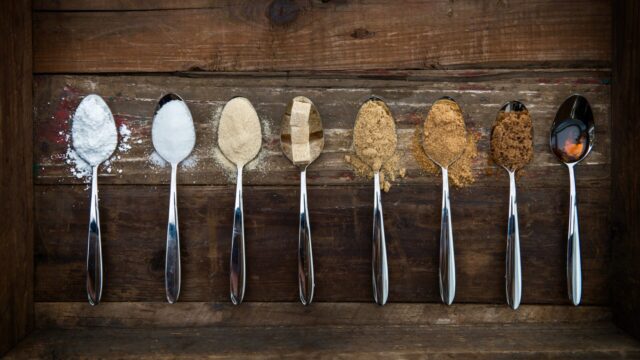
If you think only candy harms your teeth, think again. Added sugar is hiding in many foods—salad dressings, pasta sauces, even “healthy” yogurts. When these sugars are consumed regularly, they don’t just spike your blood sugar; they also wreak havoc on your teeth, leading to tooth decay and cavities.
The issue is that sugar erodes tooth enamel by coating teeth and feeding bacteria. When you combine that with diet soda or other sugary beverages, the harm is doubled.
The solution is straightforward: look for hidden refined sugars on the nutrition label and, when possible, use natural sweeteners in moderation for healthier alternatives. For snacks that genuinely enhance your general health, rinse with water after consuming sugary ones. Both your smile and your dental bill will appreciate it.
Insulin Resistance: The Silent Saboteur
Here’s a term most people don’t think about: insulin resistance. It sounds complicated, but it’s simple. When you constantly eat worst foods loaded with refined flour, added sugar, and artificial sweeteners, your body struggles to manage blood sugar. Over time, your cells stop responding to insulin properly.
This leads to more insulin being produced, weight gain, and even a higher risk of heart disease. The kicker? You might not even know it’s happening until your doctor mentions it.
Avoiding unhealthy foods and sticking to a healthy diet with whole grains, essential nutrients, and healthy fats like olive oil can improve your insulin response and reduce your risk of cardiovascular disease. Small swaps now prevent big health problems later.
Heart Healthy Swaps That Actually Taste Good
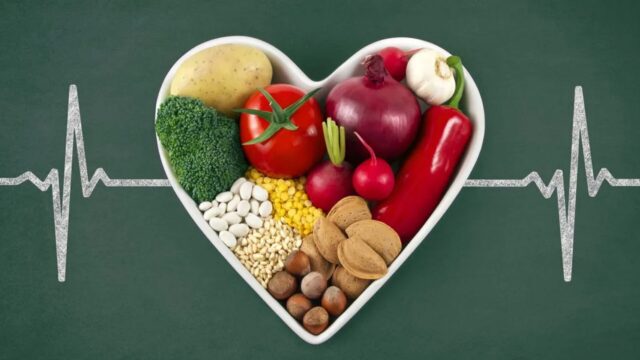
Living a heart healthy life doesn’t mean eating cardboard. You can avoid high saturated fat content and processed oils without sacrificing flavor. The secret? Smart swaps.
Trade processed meats for grilled chicken or fish. Use olive oil instead of butter or palm oil for cooking. Replace refined flour breads with whole grain bread for more fiber and essential nutrients.
Even indulgent treats have healthier options. Craving chips? Bake your own potato chips with herbs. Want dessert? Go for dark chocolate with nuts instead of candy bars full of high fructose corn syrup.
These swaps protect your blood vessels, reduce high cholesterol, and improve overall health—without losing the creamy taste and satisfaction you love.
Why Lifestyle Medicine Works Wonders
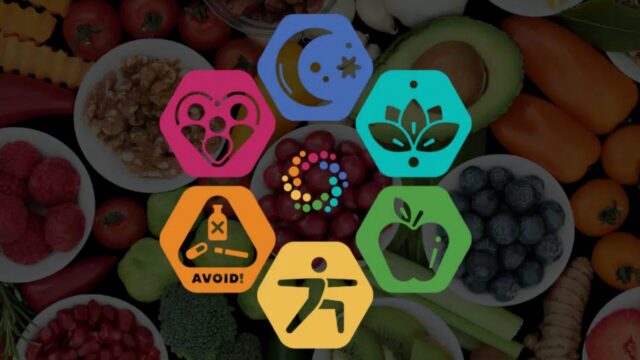
You’ve heard me mention it before: nutrition and lifestyle medicine is the future of health. Instead of just popping pills for high blood pressure or high cholesterol, this approach focuses on addressing the root cause—your daily habits.
Eating unhealthy foods full of trans fats, refined vegetable oils, and added sugar harms your body over time. But building a healthy diet rich in whole grains, fresh produce, and healthy fats repairs and protects it.
Lifestyle medicine isn’t about restriction; it’s about freedom. Freedom from constant fatigue, weight gain, and the health risks tied to poor nutrition. Trust me, nothing feels sassier than thriving because you’ve learned what your body actually needs.
Processed Oils and Your Blood Vessels

Let’s get real about processed oils. They’re cheap, they make food last longer, and they’re in just about everything. Unfortunately, they’re also terrible for your blood vessels and cholesterol levels.
Whether it’s refined vegetable oils, palm oil, or partially hydrogenated oils, these ingredients promote inflammation, high cholesterol, and a higher risk of heart problems. And they’re sneaky—you’ll find them in chips, cookies, sauces, and even some “healthy” snacks.
Look for products with olive oil or other healthy fats instead. And always scan that nutrition label. The fewer the ingredients and the more whole foods you see, the better for your overall health.
Empty Calories: Why They Matter
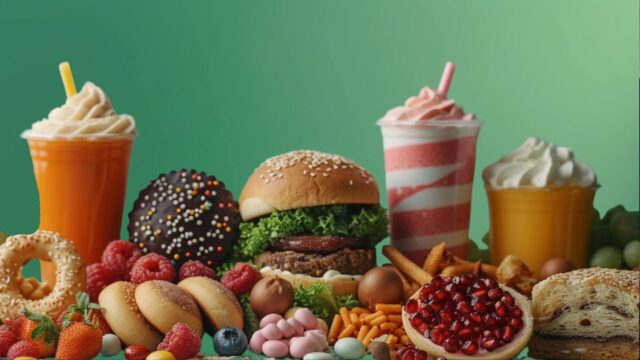
You may have heard the term “empty calories,” but let's explain it. Diet soda, sugary drinks, and ultra-processed foods are examples of foods that provide you calories but not much nourishment. They don't have the vitamins, minerals, or protein you need to feel full and satisfied.
They don't make you feel better; instead, they make you exhausted, hungry, and want more. Over time, all those empty calories make you gain weight, make your insulin less effective, and raise your cholesterol.
Instead of snacks that are high in empty calories, choose foods that are high in whole grains, protein, and fresh fruits and vegetables. You'll be able to enjoy tasty meals while feeling fuller, keeping your weight in check, and supporting your overall health.
High Cholesterol’s Long Game

Here’s the thing about high cholesterol: it doesn’t hit you overnight. You won’t feel it creeping up. But every time you snack on worst foods with high saturated fat content, processed oils, or trans fats, you’re adding to the problem.
Over time, excess LDL (bad cholesterol) sticks to your blood vessels, narrowing them and making it harder for blood to flow. This increases your risk of heart attacks, strokes, and cardiovascular disease. And if you’re pairing full fat dairy, processed meats, and fried foods with little fresh produce or whole grains, you’re setting yourself up for long-term trouble.
The fix? Focus on healthy fats like olive oil, eat fiber-rich whole grains, and add essential nutrients from veggies and fruit. Keep an eye on your nutrition label and make small swaps now. Your overall health will thank you years from today.
Why Many Foods Are Deceptive
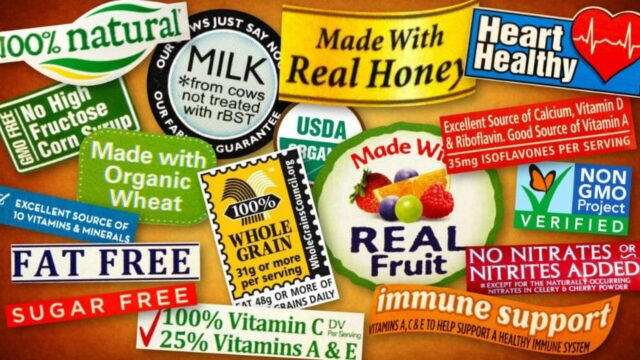
One of the biggest traps out there is how sneaky food marketing can be. Many foods are labeled as “low-fat,” “natural,” or “zero calories,” but don’t let that fool you. Often, when fat is removed, it’s replaced with added sugar, artificial sweeteners, and refined flour.
A “light” yogurt might have more added sugar than a candy bar. “Natural” breakfast cereals may still have high fructose corn syrup lurking in the ingredients. Even diet soda with its zero calories can harm your insulin response and gut health when consumed regularly.
The solution? Always read the nutrition label. Look for whole grains, fewer processed oils, and real nutritional value. Don’t fall for marketing tricks—your heart healthy lifestyle depends on knowing what’s actually in your food.
The Creamy Taste Trap
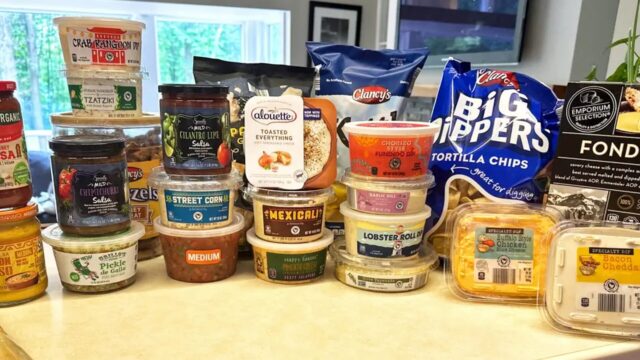
Let’s face it—we all love that rich, creamy taste of sauces, dips, and desserts. But here’s the trap: most of those creamy favorites are made with full fat dairy, palm oil, or processed oils that raise cholesterol levels and clog blood vessels.
When consumed regularly, creamy dressings and cheesy dips pack on high in calories fats with almost zero nutritional value. Pair them with fries and sugary drinks, and you’ve got a recipe for weight gain and high cholesterol.
A smarter move? Use yogurt or avocado for that creamy taste. They deliver healthy fats and essential nutrients without the health fallout. You get flavor and texture, while protecting your overall health.
Why High Blood Pressure Can Sneak Up on You
Most people think high blood pressure is only for older adults, but that’s a myth. Eating worst foods with tons of sodium, processed oils, and added sugar can make your blood pressure rise no matter your age. The scary part? You usually don’t feel symptoms until it’s already a serious problem.
Salty potato chips, microwave popcorn, and even “healthy” frozen dinners are loaded with sodium. Pair that with fried foods cooked in palm oil and a diet soda on the side, and you’ve got a recipe for high blood pressure and heart disease later on.
Preventing this is simple: limit sodium, choose fresh produce and whole grains, and watch your nutrition label for sneaky salt and sugar. Add healthy fats like olive oil and you’ll help your blood vessels stay flexible and strong for years.
Zero Calories Doesn’t Mean Zero Problems
Let's speak about that major marketing gimmick that says “zero calories.” Not everything that has no calories is good for you. Some “light” foods, diet soda, and sugar-free candies have artificial sweeteners that mislead your taste buds and mess with your insulin response.
Over time, this can hurt your gut health, make you want more sweets, and make it harder to lose weight. Some artificial sweeteners have also been linked to elevated cholesterol levels and other health problems when eaten on a regular basis.
The answer? Don't only think about calories. What matters most is the nutritional value of the food. Fresh fruits and vegetables are full of critical minerals, fiber, and healthy fats. Eating less isn't the key to a heart-healthy diet; eating intelligently is.
Why Ultra Processed Food is the Real Villain
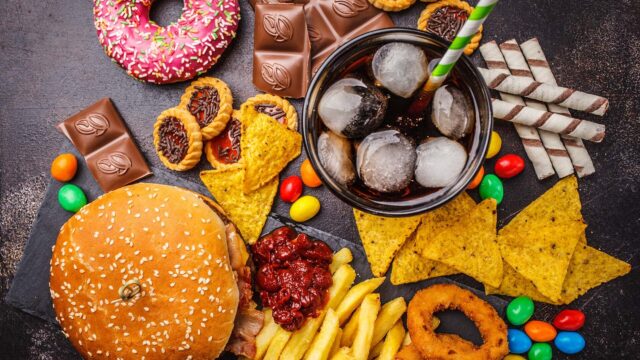
If there’s one category to watch, it’s ultra processed food. These are products that go through multiple manufacturing steps and are loaded with added sugar, refined vegetable oils, and artificial trans fats. Think packaged snack cakes, instant noodles, and overly sweetened breakfast cereals.
The issue? They offer almost no nutritional value or essential nutrients but are high in calories, addictive, and harm your blood vessels. They’re linked to high cholesterol, cardiovascular disease, and weight gain when consumed regularly.
Instead, build your meals around whole, real foods. Fresh veggies, lean proteins, and healthy fats like olive oil are your friends. Cutting back on ultra processed food is one of the best moves you can make for your overall health.
Many Foods Look Healthy But Aren’t
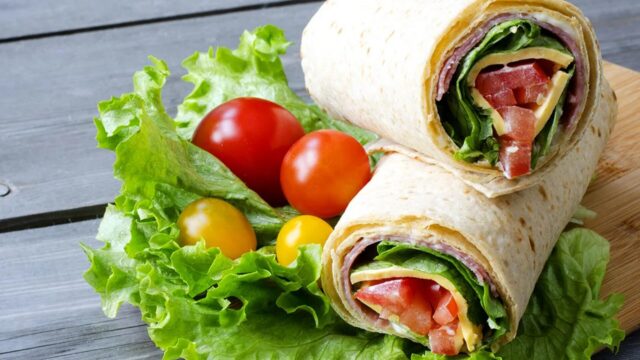
Here’s a sassy truth bomb: many foods that look healthy are total phonies. That green smoothie at the cafe? Check if it has more added sugar than soda. That “multi-grain” bread? Might just be white bread dyed brown unless it’s truly whole grain bread.
Even protein bars, “light” ice cream, and flavored full fat dairy yogurts often hide refined sugars, refined flour, and processed oils. They sound good, but without real essential nutrients, you’re just eating disguised junk.
The trick is knowledge. Flip the box and check the nutrition label. Look for whole grains, natural ingredients, and healthy cooking oils like olive oil. Be the savvy shopper who knows the difference between hype and nutritional value.
Dining Out Without the Damage

Eating out is fun, but restaurants can be sneaky with their worst foods. Even dishes that seem healthy can be drenched in refined vegetable oils, extra butter, and sauces loaded with added sugar. That “light” grilled chicken? Might come with a side of processed oils and sugary glaze.
What’s the trick? Be a savvy diner. Ask for dressings on the side. Choose grilled over fried foods and request olive oil instead of butter. Avoid sugary drinks and swap for water or unsweetened tea. And check the menu for words like “crispy,” “creamy taste,” or “loaded”—they usually scream high in calories, high saturated, and low nutritional value.
Dining out should be fun, not a ticket to weight gain and high cholesterol. A little awareness goes a long way for your overall health and heart healthy goals.
Grocery Store Secrets: Winning at Your Local Grocery Store

Here’s a pro-tip: the best way to avoid the worst foods is to master your local grocery store. Most junk lives in the center aisles—ultra processed food, microwave popcorn, and sugary snacks galore. The good stuff? It’s around the edges.
Fill your cart with fresh produce, whole grains, lean proteins, and items made with healthy fats like olive oil. Always flip packages and check the nutrition label for sneaky added sugar, palm oil, and refined flour.
And pro tip: don’t shop hungry. That’s when the potato chips and diet soda seem irresistible. Shopping smart protects your gut health, keeps your blood pressure steady, and helps you dodge those foods we all silently judge.
Risk of Heart Disease: Why It’s Worth Caring Now
You might be thinking, “Heart problems? That’s years away.” But here’s the kicker: risk of heart disease starts building now with every bite of unhealthy foods packed with trans fats, high saturated, and refined sugars.
These foods inflame your blood vessels, spike cholesterol levels, and set the stage for cardiovascular disease. Add high blood pressure and weight gain into the mix, and you’ve got a dangerous combo.
The good news? You can reverse a lot of this risk by making small changes. Add fresh produce, swap processed meats for lean protein, and choose healthy fats like olive oil. Your heart isn’t just for later—it’s for today. Protect it now, and you’ll feel the difference.
Food Myths We Need to Retire
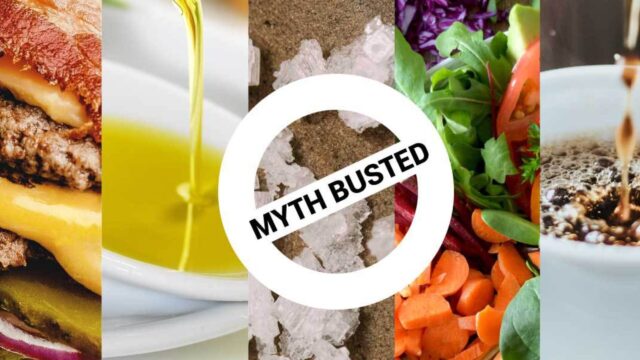
Let’s bust some myths. First, “fat makes you fat.” Nope. It’s the worst foods loaded with trans fats, added sugar, and refined sugars that cause weight gain and harm your blood vessels. Healthy fats like those in olive oil and avocados are your friends.
Second, “low-fat equals healthy.” Often, low-fat foods are packed with artificial sweeteners and sugar to make up for lost flavor. Third, “all carbs are bad.” Wrong again—whole grains are loaded with essential nutrients and help your gut health and weight management.
Understanding these myths helps you spot the real villains—processed foods, fried foods, and ultra processed food—while enjoying foods that actually support your overall health and heart healthy goals.
Snack Smarter: Easy Healthier Options
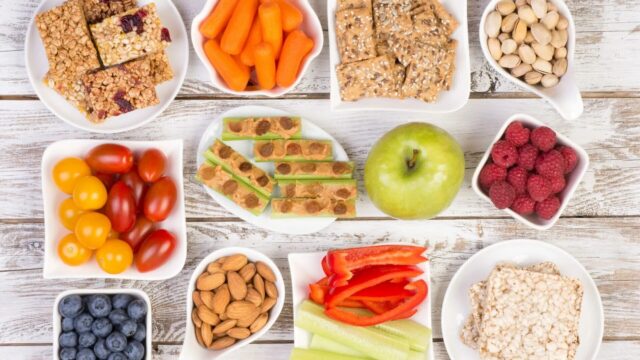
Snacking isn't bad; it's what you eat that matters. Eating potato chips, sweets, or energy drinks raises and lowers your blood sugar, raises your cholesterol, and gives you empty calories. Snacks can still be enjoyable and tasty, though.
Choose healthier snacks like apple slices with nut butter, hummus with carrots, or freshly baked chips with olive oil and spices. Air-popped popcorn is also a good choice. Don't use fake butter that has partly hydrogenated oils in it like most microwave popcorn does.
Snacks that have whole grains, fresh fruits and vegetables, and healthy fats are good for your weight, your gut, and your cholesterol levels. You can still have flavor and crunch when you snack wisely without hurting your health.
Moderation and Balance: The Real Secret
The good news is that you don't have to give up all of your favorite creamy meals to stay healthy. It's not about being perfect; it's about finding a balance in your diet.
It's okay to consume potato chips, red meat, or even fast food once in a while. The problem is when people eat these unhealthy meals all the time without any fresh fruits and vegetables, entire grains, or healthy fats.
Moderation is enjoying your sweets and choosing healthier options every day. It means using olive oil instead of refined vegetable oils, whole grain bread instead of white bread, and checking the nutrition label like a pro. A few sensible choices you make today will help you maintain your blood pressure, cholesterol, and blood sugar levels in balance for a long time.
The Motivational Wrap-Up: You’ve Got This!
We’ve covered a lot: the worst foods, their hidden dangers, and how they harm your blood vessels, gut health, and overall health. But the goal here isn’t guilt—it’s empowerment.
Now you know how to spot added sugar, processed oils, trans fats, and refined vegetable oils on a nutrition label. You’ve learned why whole grains, fresh produce, and healthy fats like olive oil matter. And you know moderation, not perfection, is the key to a heart healthy life.
Start with one change today. Maybe swap that diet soda for water, or trade potato chips for air-popped popcorn. Every little swap reduces your risk of heart disease, improves your cholesterol levels, and boosts your energy.
You deserve food that loves you back. And trust me, when you fuel your body with real nutritional value, you’ll feel (and look) amazing.
Conclusion: Food That Loves You Back
We’ve dragged the worst foods, exposed their sneaky tricks, and served you all the sass and science to back it up. But here’s the takeaway: you don’t need to live on kale and sadness to stay healthy. You just need to make smarter choices.
Every bite you take either fuels your body or fights it. Those fries swimming in processed oils? They inflame your blood vessels and mess with your cholesterol levels. That “healthy” cereal with added sugar? It spikes your blood sugar and leaves you crashing by noon. The good news? You hold the power to flip the script.
Focus on whole grains, fresh produce, and healthy fats like olive oil. Learn to love your nutrition label, question “zero-calorie” marketing tricks, and embrace moderation over perfection. Even small swaps—like baked chips over potato chips, or sparkling water instead of diet soda—make a huge difference when they’re consumed regularly.
At the end of the day, it’s not about being perfect; it’s about being aware. You deserve food that keeps your heart happy, your energy steady, and your body thriving. Trust me, your future self (and those silently judging friends) will thank you for fueling your life with real nutritional value.
Because life’s too short for empty calories—choose foods that truly love you back.
Peter Vanderbuild
Trevor Fields is a tech-savvy content strategist and freelance reviewer with a passion for everything digital—from smart gadgets to productivity hacks. He has a background in UX design and digital marketing, which makes him especially tuned in to what users really care about. Trevor writes in a conversational, friendly style that makes even the most complicated tech feel manageable. He believes technology should enhance our lives, not complicate them, and he’s always on the hunt for tools that simplify work and amplify creativity. Trevor contributes to various online tech platforms and co-hosts a casual podcast for solopreneurs navigating digital life. Off-duty, you’ll find him cycling, tinkering with app builds, or traveling with a minimalist backpack. His favorite writing challenge? Making complicated stuff stupid simple.

